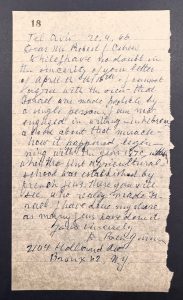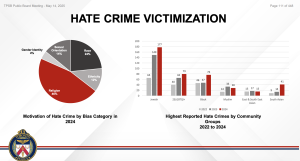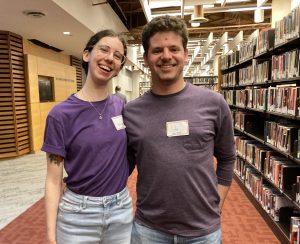 TORONTO — The lines between formal and informal education are blurring, according to Ron Polster, UJA Federation of Greater Toronto’s director of Jewish camping.
TORONTO — The lines between formal and informal education are blurring, according to Ron Polster, UJA Federation of Greater Toronto’s director of Jewish camping.
Ron Polster
“Schools are recognizing the need to become more informal, and camps are recognizing the need to have curriculum. Nobody likes to use that word,” he said in a recent interview at his office at the Lipa Green Centre. “Whether it’s on a Jewish level or not… we want to not only develop their skills in canoeing, but we want them to experience Shabbat.”
A prime example of the newer approach can be seen at the Union for Reform Judaism’s Camp George, where Polster spent five years as camp director. This year, Rabbi Noam Katz, a musician and educator with a master’s degree in Jewish education, became Camp George’s first “dean of Jewish living.” His position is unique for its dual aspect – Rabbi Katz will be at camp during the summer and, during the school year, at Leo Baeck Day School.
The “experiential education” aspect – a term Polster prefers to “informal education” – is part of an “understanding that one of the real benefits of Jewish overnight camp is that it’s a joyous celebration.”
From the time he was 12 years old until he began working for the federation three years ago, Polster spent every summer at Jewish overnight camp. The 43-year-old Cleveland native went through the Ramah system in Ontario as both a camper and a staff member. He has a PhD in philosophy of religion from the University of Toronto and has lived here since 2002.
Drawing on his own experience as well as research by the federation and the Federation for Jewish Camp, Polster says there’s a natural connectivity between camp and attachment to Israel, and between camp and Jewish community.
More than 60 Israeli shlichim work at the eight Jewish overnight camps affiliated with the federation, Polster noted. As well, he added, other camps that serve the local Jewish population have also started to have Israelis on staff.
Aside from Camp Kadimah – which is located in Nova Scotia but draws 70 per cent of its camper population from the GTA – the other overnight camps Polster works with are located in Ontario: Camp George, Camp Gesher, Camp Moshava, Camp Northland-B’nai Brith, Camp Ramah, Camp Shalom and Camp Shomria.
At camp, he said, “Jewish community just happens.”
Parents are also recognizing the role Jewish camps can play in building Jewish identity and creating a connection to the Jewish community, Polster said.
“In terms of infusing Jewish values and learning about Israel, and identity building – that happens at all of our camps, and not just on Yom Yisrael, where it’s one day set aside for eating hummus and falafel. It’s based on the Birthright [Israel] notion of mifgash – the encounter with another human being who happens to be from another country, who’s able to articulate different culture, different values… that is a primary Jewish identity builder within the camps,” Polster said.
Also, celebrating Shabbat together creates a sense of being “a part of something greater,” he added.
Between them, the eight camps have more than 4,000 campers registered for this summer, an increase of about three per cent over the past three years.
This year, however, the numbers are “really static,” in part because of the economy, said Polster. He noted that requests for camp tuition subsidies – distributed in Toronto through Jewish Family & Child, JIAS and by the camps themselves – are increasing.
About 600 or more children from low-income families receive subsidies for day and overnight camp though a subsidy program administered by JF&CS, he said.
The federation is also launching a 10-day camp program for children from the Russian-speaking community.
As well, federation’s Top Bunk program, which had 275 participating campers last year, offers $1,250 per child for first-time Jewish overnight camp attendees who are in grades 2 to 7 and not attending a Jewish day school. This year, another 275 children are part of the program.
“For us, the most compelling statistic about [Top Bunk] was that 25 per cent of those kids had no Jewish education at all. And 90 per cent come back for a second summer.”
At a cost of approximately $1,000 per week, unsubsidized, camp is a more modest investment than day school tuition, which ran this year in the $11,000 to $12,000 range for elementary and junior high school, and up to almost $19,000 for high school, at the Anne and Max Tanenbaum Community Hebrew Academy of Toronto.
Referring to anecdotal evidence, Polster added that some parents who don’t send their children to Jewish day school send them to Jewish camp in the hope that the experience will strengthen their Jewish identity.






